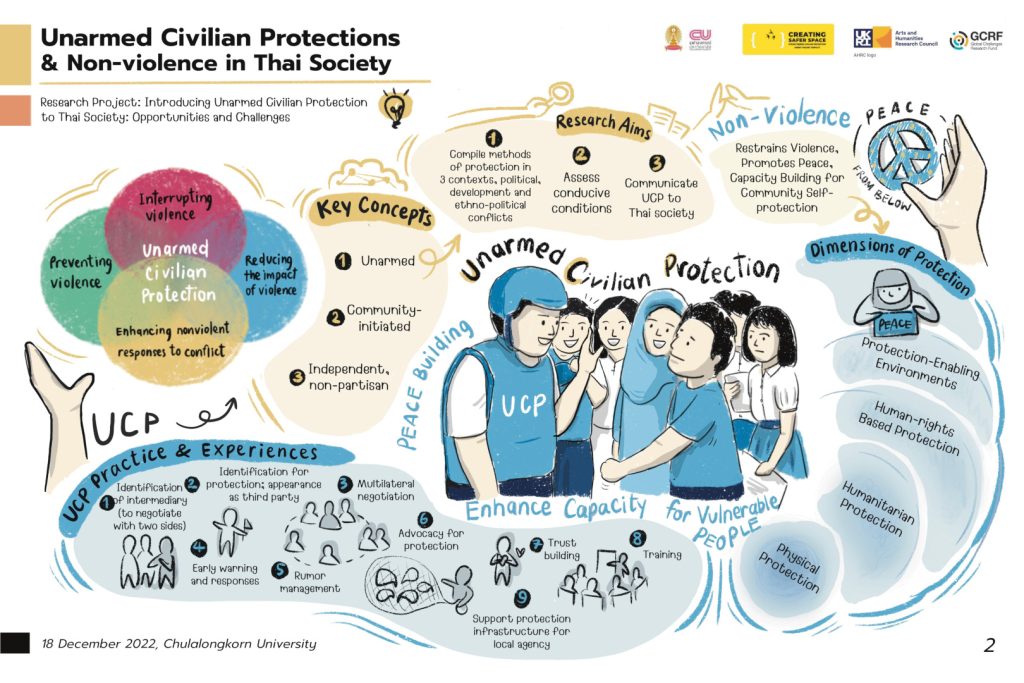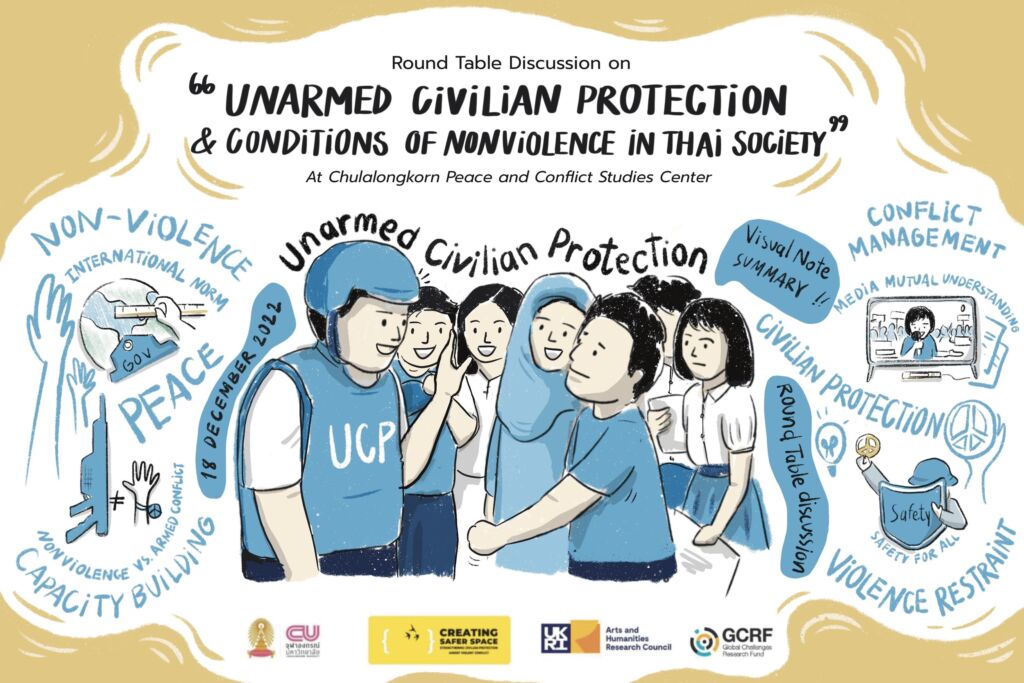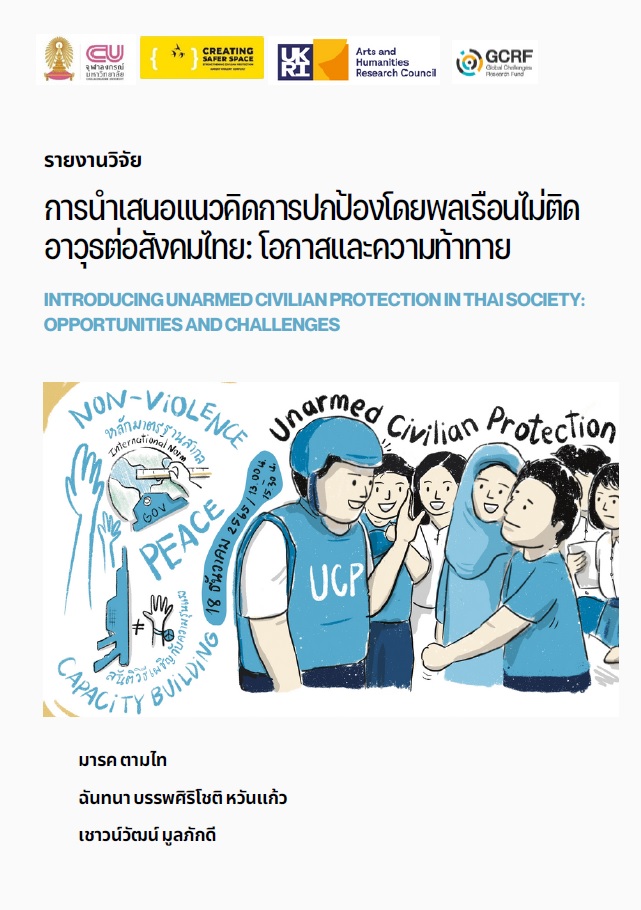
Thailand is a country that is presently experiencing different kinds of violence, from the low-intensity conflict in the Deep South, to violence surrounding political protests, and to environmentally based conflicts with tribal ethnic groups. The state’s application of emergency law, martial law, national security law, and the persistent impunity in the security sector, have resulted in a situation in which protection mechanisms by the state are not adequate.
This research had the following questions/objectives:
- To demonstrate that protection of civilians can also be done by civilians, and that unarmed protection can be learned.
- To explore the opportunities and challenges of UCP practices in the Thai conflicts and political context.
- To reiterate that UCP is part of conflict management and nonviolent struggle.
- To compile, define, and analyse patterns of civilian protection practices in various conflict situations.
- To identify the conditions and the social and political environments affecting UCP practices.
- To design communication channels and a social learning platform for UCP.
RESEARCH TEAM
- Chantana Wungeao, Peace and Conflict Studies Center, Chulalongkorn University, Thailand (principal investigator)
- Mark Tamthai, Strategic Nonviolence Working Group, Thailand (co-investigator)
- Nonviolent Peaceforce Philippines (project partner)
RESEARCH OUTPUTS
Series of Policy Briefs (Thai only)
Policy Brief 1: The UCP Idea
Policy Brief 2: Opportunities & Challenges
Policy Brief 3: UCP and Nonviolence
Visual Notes
A visual note summary of the roundtable discussion “Unarmed Civilian Protection and Conditions of Nonviolence in Thai Society” at Chulalongkorn Peace and Conflict Studies Center, December 2022. Illustrated by Wanwisa Intarakanchit.
Report: Introducing Unarmed Civilian Protection in Thai Society (in Thai)










